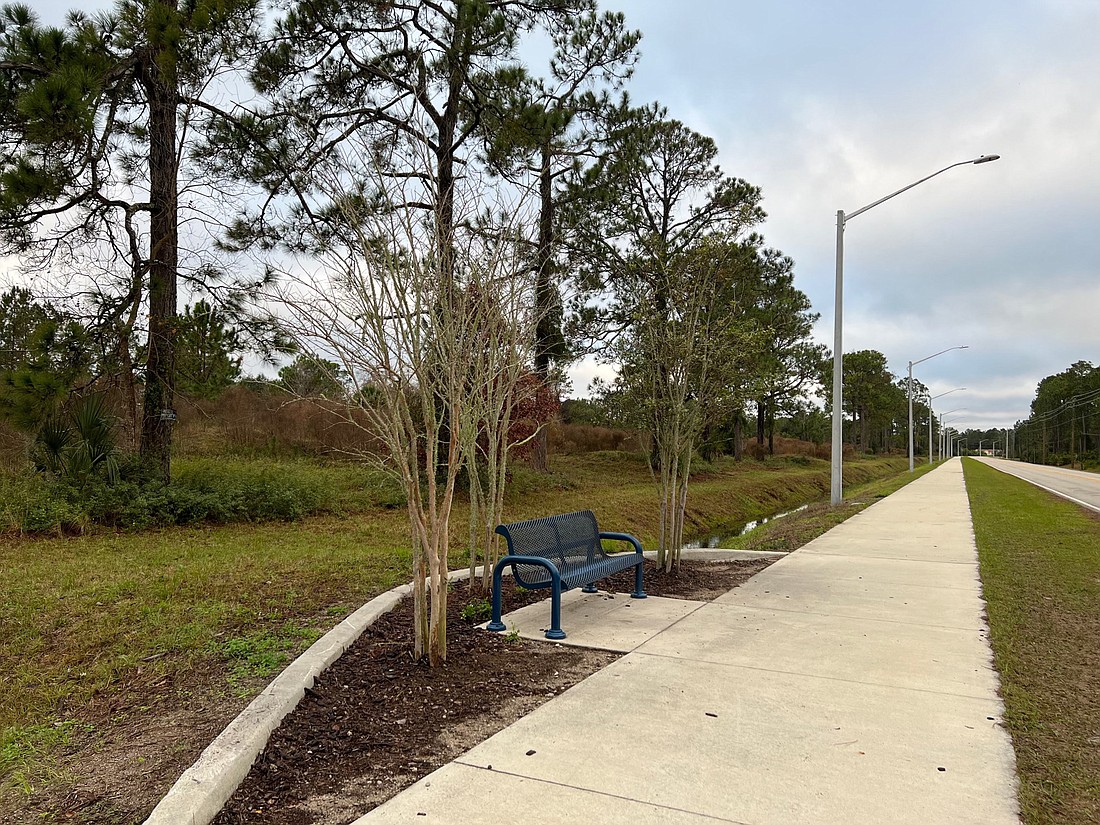- January 15, 2025
-
-
Loading

Loading

A proposed 200-lot subdivision on the former Matanzas Woods Golf Course property may move forward — as long as the developer remediates arsenic contamination on the site in accordance with state and federal standards and presents a plan to create and maintain view protection zones to protect neighboring homes' view sheds.
The Palm Coast Planning and Land Development Regulation Board approved a subdivision master plan for Tract 1 of the development, known as Lakeview Estates, in a 6-0 vote at a Dec. 15 planning board meeting.
"It’s an issue that we’re absolutely confident that we can address."
— MICHAEL SZNAPSTAJLER, environmental attorney, Cobb Cole Attorneys at Law
It will have to undergo two additional levels of review — a preliminary plat requiring administrative approval and a final plat requiring Palm Coast City Council approval — before vertical construction begins.
The property sits on Lakeview Boulevard about a mile north of Matanzas Woods Parkway, and is bordered by London Drive, Lake Success Drive and Laramie Drive.
Representatives of the owner, Matanzas GC Palm Coast LLC, said they'll be able to remediate the arsenic.
"It’s an issue that we’re absolutely confident that we can address," said Michael Sznapstajler, an environmental attorney for the Daytona Beach-based Cobb Cole law firm. "The assessment or remediation has to be done before that construction can commence. ... There is an environmental issue, but it’s one that we, based on the data, think is relatively minor, and the reason that’s the case is because this is a more modern golf course facility."
The developer will further investigate the extent of the contamination, Sznapstajler said.
"We’re going to need to look into those issues in more detail and find out where that contamination starts and stops," he said.
Residents weren't convinced.
"Has the city determined if this will have a negative impact on the value of surrounding landowner’s properties — guilt by association?" said Lake Success Drive resident Leann Pennington. "Will the L-Section become known as the contaminated section of Palm Coast?"
"The city wants this cleaned up, and it’s going to get cleaned up. We are not going to allow construction related to development activities on the contaminated site, until it’s done."
— RAY TYNER, Palm Coast deputy chief development officer
Other residents worried that the construction would stir up arsenic-contaminated dust that would end up in neighbors' yards and swimming pools.
Sznapstajler said that the remediation process would follow legal dust control and health and safety standards.
Local real estate writer Toby Tobin noted that the developer was in the first steps of the process.
"We’re not approving, tonight, the construction; we’re just approving the initial first step," he said. As to concerns about the proposed development affecting property values, he added, people had worried about property values falling when the golf course closed, too, but that never happened.
"I can’t say I feel sorry for the people worried about their property values going down: I don’t think this is going to have any effect on the property values whatsoever," Tobin said.
Palm Coast Deputy Chief Development Officer Ray Tyner said that the city would make sure that the developer cleans up the site and meets the Department of Environmental Protection's standards before any construction begins.
"The city wants this cleaned up, and it’s going to get cleaned up," Tyner said. "We are not going to allow construction related to development activities on the contaminated site, until it’s done."
Attorney Michael Chiumento, representing the developer, noted that the site wouldn't be remediated if not for the proposed development.
"We are now a partner with the community, and a partner with the city, to clean up 40 years of pesticides that were sprayed," Chiumento said. "... At the end of this process, before anybody is able to construct a home, before anybody is able to put asphalt on the ground, the process dictates that it is cleaned up."